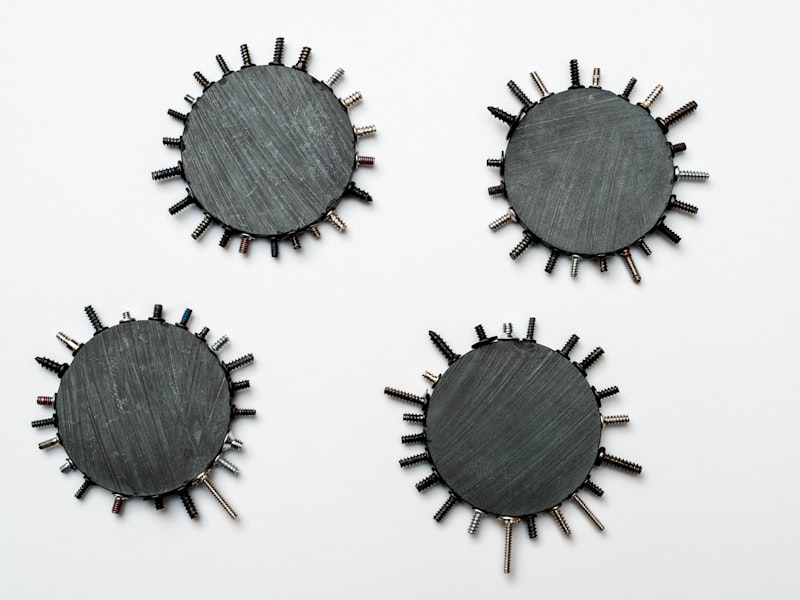Firstly, diagnosing the cause of the engine knock is crucial. It often occurs due to improper fuel combustion, which leads to a knocking or pinging sound. Check your fuel quality and octane rating. Using a higher octane fuel can sometimes alleviate the problem by reducing the likelihood of premature combustion.
Another common culprit is worn-out spark plugs. These small components play a big role in igniting the fuel-air mixture in your engine. If they’re old or faulty, they can cause misfires that result in engine knock. Replacing spark plugs at regular intervals can prevent this issue.
Additionally, engine oil plays a vital role in keeping your engine running smoothly. Low oil levels or old, degraded oil can lead to increased friction and heat inside the engine, which in turn can cause knocking noises. Regularly check your oil levels and change the oil as per manufacturer recommendations.
Sometimes, the engine knock may be due to loose or damaged components such as connecting rod bearings or piston rings. These parts can wear out over time, especially in high-mileage engines. If you suspect internal engine damage, it’s best to have a professional mechanic inspect and diagnose the issue.
Lastly, consider the environmental conditions and your driving habits. High temperatures, heavy loads, or aggressive driving can exacerbate engine knock. Adjusting your driving style and avoiding harsh conditions can help mitigate the issue.
Addressing a car’s engine knock promptly and correctly is essential for maintaining engine health and prolonging the lifespan of your vehicle. By understanding the potential causes and taking proactive steps, you can prevent costly repairs and keep your car running smoothly for years to come.
5 Easy Steps to Silence Your Car’s Engine Knock for Good!
-
Check Your Fuel Quality: Poor-quality or low-octane fuel can cause engine knock. Make sure you’re using the right fuel grade recommended for your vehicle. High-octane fuel burns more efficiently and reduces the likelihood of knock.
-
Inspect Spark Plugs: Worn-out or dirty spark plugs can contribute to engine knock. Check your spark plugs regularly and replace them if necessary. Good spark plugs ensure proper ignition timing and combustion, reducing knock.
-
Use Fuel Additives: Fuel additives can clean carbon deposits and improve fuel combustion, reducing engine knock. Look for additives specifically designed to reduce knock and improve fuel quality.
-
Adjust Timing: Incorrect ignition timing can lead to engine knock. Consult your vehicle’s manual or a mechanic to ensure your ignition timing is set correctly. Proper timing ensures that fuel ignites at the right moment, minimizing knock.
-
Engine Maintenance: Regular maintenance is key to preventing engine knock. Keep up with oil changes, air filter replacements, and other routine maintenance tasks. A well-maintained engine operates more efficiently and is less prone to knocking.
Expert Tips: Diagnosing and Resolving Engine Knock Issues
One of the primary causes of engine knock is using fuel with a lower octane rating than recommended for your vehicle. Octane rating indicates the fuel’s resistance to detonation, so using a lower octane fuel than required can cause premature ignition and knocking. Always check your owner’s manual to ensure you’re using the right fuel grade for your engine.
Another common culprit behind engine knock is carbon deposits or “carbon buildup” inside the combustion chamber. Over time, carbon deposits can accumulate on the pistons, cylinder walls, and valves, altering the smooth operation of the combustion process and leading to knock. Regular maintenance, including using fuel additives designed to clean the engine, can help prevent this issue.
Timing issues in the engine’s ignition system can also contribute to engine knock. If the ignition timing is too advanced, the air-fuel mixture may ignite prematurely, causing knocking. Conversely, if the timing is too retarded, it can lead to incomplete combustion and similar knocking symptoms. Ensuring that your vehicle’s ignition timing is within manufacturer specifications during routine tune-ups can mitigate these problems.
Furthermore, excessively high engine temperatures can trigger engine knock. This can occur due to factors such as inadequate cooling system performance or overly lean air-fuel mixtures. Monitoring your vehicle’s temperature gauge and addressing any cooling system issues promptly can help prevent overheating-related knock.
Diagnosing and resolving engine knock requires careful consideration of fuel quality, carbon buildup, ignition timing, and engine temperature. By addressing these factors proactively and following manufacturer recommendations, you can ensure smooth engine operation and prolong the lifespan of your vehicle.
Ultimate Guide: Understanding and Fixing Engine Knock Yourself

Engine knock, also known as detonation or spark knock, can be alarming for any vehicle owner. It’s that ominous sound of metallic knocking or pinging that occurs when fuel ignites prematurely in the engine’s combustion chamber. This issue not only affects engine performance but also potentially leads to serious damage if left unchecked.
Understanding the causes of engine knock is crucial. It often occurs when the air-fuel mixture ignites unevenly, creating shock waves that collide within the cylinder. Factors like low-quality fuel, improper ignition timing, or carbon deposits on engine components can exacerbate this issue. Fortunately, there are steps you can take to diagnose and fix engine knock yourself.
Firstly, check the octane rating of the fuel you’re using. Using fuel with a lower octane rating than recommended for your vehicle can cause premature ignition, leading to knock. Ensure you’re using the manufacturer-recommended fuel grade to prevent this.
Secondly, inspect and replace worn-out spark plugs regularly. Spark plugs play a vital role in igniting the air-fuel mixture at the right time. Worn-out or fouled spark plugs can cause misfires, contributing to engine knock.
Another common culprit is carbon buildup inside the combustion chamber and on the pistons. Using fuel additives designed to clean the fuel system can help remove these deposits, restoring proper engine operation.
Additionally, ensure your engine’s cooling system is functioning correctly. Overheating can exacerbate engine knock by causing the air-fuel mixture to ignite prematurely. Check coolant levels and monitor the engine temperature regularly, especially during hot weather or heavy loads.
By understanding the causes and taking proactive steps, you can effectively mitigate and resolve engine knock issues yourself, ensuring smoother performance and prolonging the life of your vehicle’s engine.
DIY Mechanic’s Toolbox: Essential Tools for Engine Knock Repair
Firstly, a trustworthy mechanic’s stethoscope is indispensable. It’s your auditory detective, pinpointing the exact source of the knock amidst the engine’s intricate symphony. With its precise sound amplification, you can distinguish between harmless vibrations and concerning knocks, guiding your repair strategy.
Next up, a comprehensive set of wrenches ranging from adjustable crescent wrenches to specialized socket wrenches. These are your versatile troubleshooters, loosening and tightening components with precision. Whether it’s adjusting valve clearances or securing new gaskets, having the right wrench ensures every bolt turns smoothly without compromise.
Then, there’s the faithful torque wrench, your precision instrument for tightening bolts to manufacturer specifications. Engine knocks can often stem from improperly torqued components, making this tool invaluable for achieving optimal mechanical integrity.
Of course, no mechanic’s arsenal is complete without a diagnostic scanner. Modern engines rely heavily on electronic controls, and a quality scanner helps you decode error codes and monitor live data. It’s your digital assistant, revealing hidden insights and ensuring your repair efforts are backed by accurate diagnostic information.
Lastly, a set of feeler gauges and a flashlight rounds out your toolkit. Feeler gauges delicately measure tiny gaps crucial for fine-tuning engine components, while a powerful flashlight illuminates dark corners, revealing details often missed by the naked eye.
Proven Methods: How Mechanics Solve Engine Knock Quickly
When your car engine starts knocking, it’s more than just an annoying sound—it could signal serious problems under the hood. Mechanics employ various proven methods to swiftly address engine knock and prevent further damage. Let’s dive into how they tackle this issue effectively.
Firstly, mechanics diagnose the root cause of the engine knock. Often, it’s due to improper fuel combustion, which can be caused by low-quality fuel, incorrect ignition timing, or carbon deposits in the combustion chamber. Identifying these factors is crucial to determining the most appropriate solution.
One common method mechanics use is adjusting the ignition timing. This involves altering when the spark plugs fire in the combustion cycle. By ensuring the spark occurs at the optimal moment, mechanics can reduce or eliminate the knock caused by premature ignition.
Another effective approach is fuel system cleaning. Mechanics may use specialized additives or perform a thorough fuel system cleaning to remove carbon deposits from the engine. This helps restore proper fuel combustion and reduces the likelihood of engine knock recurring.
In some cases, replacing the spark plugs can resolve engine knock issues. Over time, spark plugs wear out, affecting their ability to ignite the fuel-air mixture correctly. Mechanics replace old spark plugs with new ones that provide a consistent spark, promoting smoother engine operation.
Furthermore, adjusting the air-fuel mixture ratio can be beneficial. Mechanics may tweak this ratio to ensure the engine receives the ideal blend of air and fuel for combustion. This adjustment can help mitigate engine knock and improve overall engine performance.
Lastly, for more severe cases, mechanics might recommend checking and, if necessary, replacing engine components such as the knock sensor or the exhaust gas recirculation (EGR) valve. These components play crucial roles in engine performance and emissions control, addressing underlying issues that contribute to engine knock.
By employing these proven methods, mechanics can effectively diagnose and resolve engine knock, restoring your vehicle’s performance and reliability. Next time you hear your engine knocking, consider these approaches to swiftly tackle the issue before it causes further damage.
What Causes Engine Knock and How to Prevent It
Several factors contribute to engine knock, with one primary cause being low-quality fuel or fuel with a low octane rating. Octane, a measure of fuel’s resistance to pre-ignition, influences how smoothly the air-fuel mixture burns in the engine. Lower octane fuels ignite sooner than higher octane variants, leading to premature combustion and subsequent knocking noises.
Another common culprit is excessive carbon deposits or “carbon buildup” within the combustion chamber. Over time, carbon deposits accumulate on the piston heads, cylinder walls, and valves. These deposits absorb heat and pressure, raising the temperature in the combustion chamber and promoting premature ignition of the fuel mixture.
Additionally, engine knock can stem from improper ignition timing. When the spark plug ignites the air-fuel mixture either too early or too late, it disrupts the combustion process. Advanced ignition timing causes the mixture to ignite before the piston reaches the optimal position, while retarded timing delays ignition, leading to incomplete combustion.
To safeguard against engine knock and maintain optimal engine performance, several preventive measures prove effective:
-
Use High-Quality Fuel: Opt for fuels with a higher octane rating suitable for your vehicle’s engine. Higher octane fuels resist premature ignition, reducing the likelihood of engine knock.
-
Regular Maintenance: Perform regular maintenance, including timely replacement of spark plugs and air filters. Clean fuel injectors and ensure the engine operates within recommended temperature ranges.

Carbon Cleaning: Periodically clean carbon deposits from the combustion chamber using appropriate fuel additives or professional cleaning services. This helps restore engine efficiency and reduces the risk of knock.
-
Monitor Ignition Timing: Ensure the ignition timing aligns with manufacturer specifications. Consult a mechanic to adjust timing if necessary, ensuring proper combustion timing.
-
Avoid Heavy Loads and High Temperatures: Reduce excessive engine loads and avoid prolonged high-speed driving, especially in hot weather conditions. High temperatures exacerbate conditions that lead to engine knock.
By understanding the causes of engine knock and implementing proactive maintenance practices, vehicle owners can preserve engine longevity and performance. Stay vigilant to unusual engine sounds and address them promptly to prevent more severe mechanical issues down the road.
Step-by-Step Guide: Silence Your Car’s Engine Knock in Minutes
Firstly, identify the type of engine knock you’re dealing with. Is it a light tapping noise or a more pronounced knocking sound? Light taps often indicate minor issues like low-quality fuel or carbon buildup, while heavier knocks might signal more serious problems like worn-out bearings or piston issues.
Next, check your engine oil level and quality. Low oil levels or old, degraded oil can lead to increased friction and engine knocking. Make sure your oil is at the recommended level and consider changing it if it’s dirty or past its service life.
Inspect the spark plugs and ignition timing. Faulty spark plugs or incorrect ignition timing can cause irregular combustion, leading to engine knock. Replace worn-out spark plugs and ensure your ignition timing is set correctly according to your vehicle’s specifications.
Consider using a higher octane fuel. Sometimes, using fuel with a lower octane rating than recommended can cause pre-ignition, resulting in engine knock. Switch to a fuel with a higher octane rating to see if the knocking subsides.
If the knocking persists, it may be time to clean your engine’s combustion chamber. Carbon deposits can accumulate over time and cause hot spots that lead to knocking. Use a quality fuel system cleaner or have a professional perform a carbon cleaning service to remove deposits and restore engine performance.
Lastly, if none of these steps resolve the issue, it’s advisable to consult a qualified mechanic. Persistent engine knock could indicate more serious internal damage that requires professional diagnosis and repair.
By following these steps, you can effectively silence your car’s engine knock and ensure smooth and reliable performance on the road. Don’t wait until a minor noise becomes a major problem – take action today to keep your engine running at its best.
Frequently Asked Questions
When should I seek professional help for engine knocking?
Learn when to seek professional help for engine knocking to prevent serious damage. Discover the signs that indicate it’s time for a mechanic, ensuring timely repairs and avoiding costly engine issues.
What are the common solutions to fix engine knock?
Learn about common solutions to address engine knock, a rattling noise caused by improper combustion. Options include using higher octane fuel, checking and adjusting ignition timing, inspecting and replacing spark plugs, ensuring proper engine oil viscosity, and addressing issues with the engine’s cooling system.
Can low-quality fuel cause engine knocking?
This FAQ explains whether low-quality fuel can lead to engine knocking. It provides a concise answer addressing the direct impact of fuel quality on engine performance, specifically focusing on the occurrence of engine knocking.
What causes engine knocking in cars?
Engine knocking in cars is typically caused by the improper combustion of fuel in the engine cylinder, leading to vibrations that produce a knocking sound. This can be due to low-quality fuel, incorrect ignition timing, carbon deposits, or overheating. Regular maintenance and using high-quality fuel can help prevent engine knocking.
How do I diagnose an engine knock?
Learn how to diagnose an engine knock with our concise guide. Discover step-by-step methods to identify and address engine knocking noises, ensuring optimal vehicle performance and longevity.



